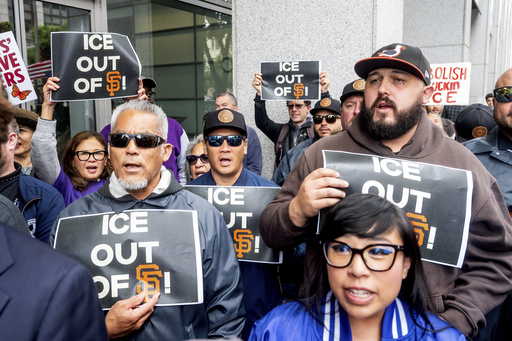In Washington, the Pentagon found itself in a challenging position on Monday as it worked to define the rules of engagement for U.S. Marines potentially facing the unusual task of using force on American citizens. This has surfaced with the Trump administration’s decision to deploy active duty troops amidst ongoing immigration raid protests in Los Angeles.
The U.S. Northern Command has confirmed the dispatch of 700 Marines to the Los Angeles area to ensure the security of federal properties and personnel, including immigration agents. The 2nd Battalion, 7th Marines, stationed at Twentynine Palms, California, will support the around 4,100 National Guard members who are either already deployed or authorized to be in Los Angeles in response to the protests.
Trained in conflict de-escalation, crowd management, and rules of force usage, these forces nevertheless face a different challenge than their experiences in war zones like Syria and Afghanistan. In their new role, the Marines might encounter aggressive protestors wielding gas canisters and need to make swift decisions on responding, especially if protecting an immigration agent from a potentially hostile crowd.
According to a U.S. official, while Marines will carry their standard service weapons, they will not have tear gas. They will, however, be equipped with protective gear such as helmets, shields, and gas masks.
The guidelines for responding to threats abroad are comprehensively outlined by engagement rules; domestically, they follow standing force usage rules. Each Marine receives detailed instructions on permissible actions from those directives, an official noted.
For example, according to draft documents on use-of-force reviewed by the Associated Press, shooting warning shots is prohibited. While the Marines prioritize de-escalating situations, they retain the authority for self-defense, these documents state.
Further guidance for the Marines is being determined, with nine U.S. officials offering insights under anonymity. The Pentagon is preparing a memorandum to clarify the Marines’ protocol for protecting federal personnel and buildings. It will detail scenarios where Marines might temporarily detain civilians, particularly if under attack or if needed to prevent harm, as explained by a first U.S. official.
This might involve detaining civilians before handing them over to law enforcement authorities. Utilizing Marines to safeguard federal buildings averts the need to invoke the Insurrection Act, one U.S. official explained.
The Insurrection Act allows presidential authorization of federal troop deployments for law enforcement during national emergencies, though it seldom applies. The act wasn’t used in this instance, and its potential activation remains uncertain.
President George H.W. Bush utilized the Insurrection Act during the 1992 Los Angeles riots after four police officers were exonerated in Rodney King’s case, raising questions about its current applicability. Should violence escalate, the legality of Marine interventions remains ambiguous, stated Elizabeth Goitein, senior director at the Brennan Center for Justice, NYU Law School.
“If those Marines physically engage with civilians or perform searches, substantial legal concerns arise,” clarified Goitein. “No invoked statutory authority by Trump sanctions this.” Defense Secretary Pete Hegseth tweeted Saturday night about considering a Marine deployment after consulting Gen. Dan Caine, the Joint Chiefs chairman, according to officials.
Yet, this tweet from Hegseth’s personal X account, rather than his official government account, caught many in the Pentagon off-guard. By Monday, military leadership continued evaluating the broader implications. The Marine Corps faces decisions on whether seasoned personnel or inexperienced troops should engage in potentially complex civilian interaction decisions.
Under the Fourth Amendment of the U.S. Constitution, governing lawfulness in domestic deployments, military personnel must comply with prohibitions on seizing individuals without reasonable cause. The Posse Comitatus Act generally restricts federal forces from engaging in civilian law enforcement on U.S. soil.



